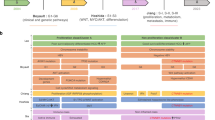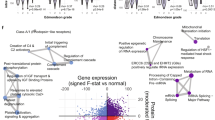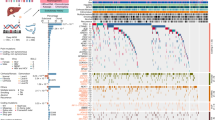Abstract
The potassium channels are ubiquitous multisubunit membrane proteins, and potassium-dependent alterations in the membrane potential play an important role in the proliferation of many types of cells. This study analyzed the mutation, allelic loss and expression patterns of the KCNRG gene in 77 HCCs in order to determine if the KCNRG gene, which encodes the potassium channel regulating protein, is involved in the tumorigenesis of hepatocellular carcinoma (HCC). One KCNRG missense mutation, CGT→CAT (Arg→His) was found at codon 92 within the T1 domain. Hep3B hepatoma cells were transfected with the wild- or mutant-KCNRG to determine the effect of this mutation in KCNRG. Interestingly, the suppressive cell growth activity of the mutant-type KCNRG was significantly lower than that of the wild-type KCNRG. In addition, allelic loss was detected in 17 out of 64 (26.5%) informative HCC cases, and all were hepatitis B virus (HBV)-positive. Moreover, the allelic loss was closely related to an intrahepatic metastasis (P=0.0247), higher grade (P=0.0078) and clinical stage (P=0.0071). Expression analysis revealed 22 tumor tissues to have a loss of expression of the KCNRG transcript. These results suggest that genetic alterations and the expression of KCNRG might play an important role in the development and/or progression of a subset of HCCs.
Similar content being viewed by others
Article PDF
Author information
Authors and Affiliations
Rights and permissions
This is an Open Access article distributed under the terms of the Creative Commons Attribution Non-Commercial License (http://creativecommons.org/licenses/by-nc/3.0/) which permits unrestricted non-commercial use, distribution, and reproduction in any medium, provided the original work is properly cited.
About this article
Cite this article
Cho, Y., Kim, C., Song, J. et al. Genetic and expression analysis of the KCNRG gene in hepatocellular carcinomas. Exp Mol Med 38, 247–255 (2006). https://doi.org/10.1038/emm.2006.30
Published:
Issue date:
DOI: https://doi.org/10.1038/emm.2006.30
Keywords
This article is cited by
-
Expression of miR-145 and miR-18b in Peripheral Blood Samples of Head and Neck Cancer Patients
Indian Journal of Clinical Biochemistry (2023)
-
The emerging role of the KCTD proteins in cancer
Cell Communication and Signaling (2021)
-
Differential Expression of Ion Channels and Transporters During Hepatocellular Carcinoma Development
Digestive Diseases and Sciences (2015)
-
The roles of K+ channels in cancer
Nature Reviews Cancer (2014)
-
Pro-apoptotic and antiproliferative activity of human KCNRG, a putative tumor suppressor in 13q14 region
Tumor Biology (2010)



